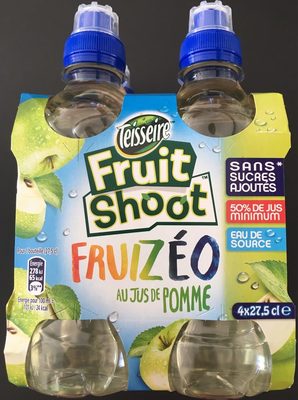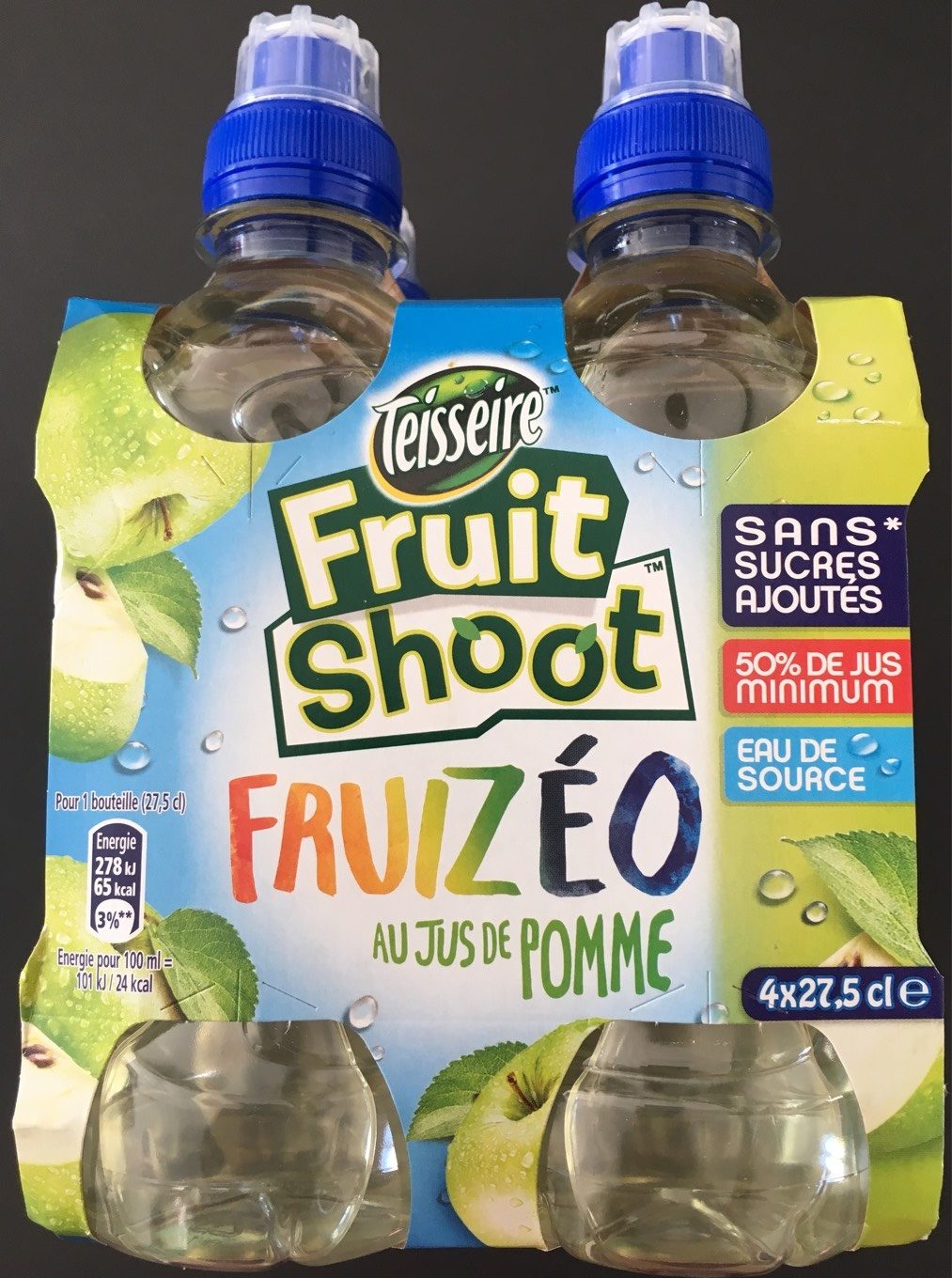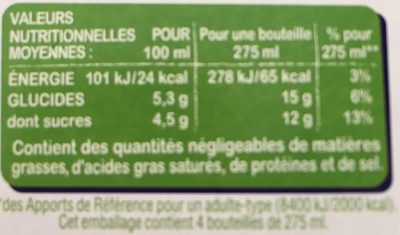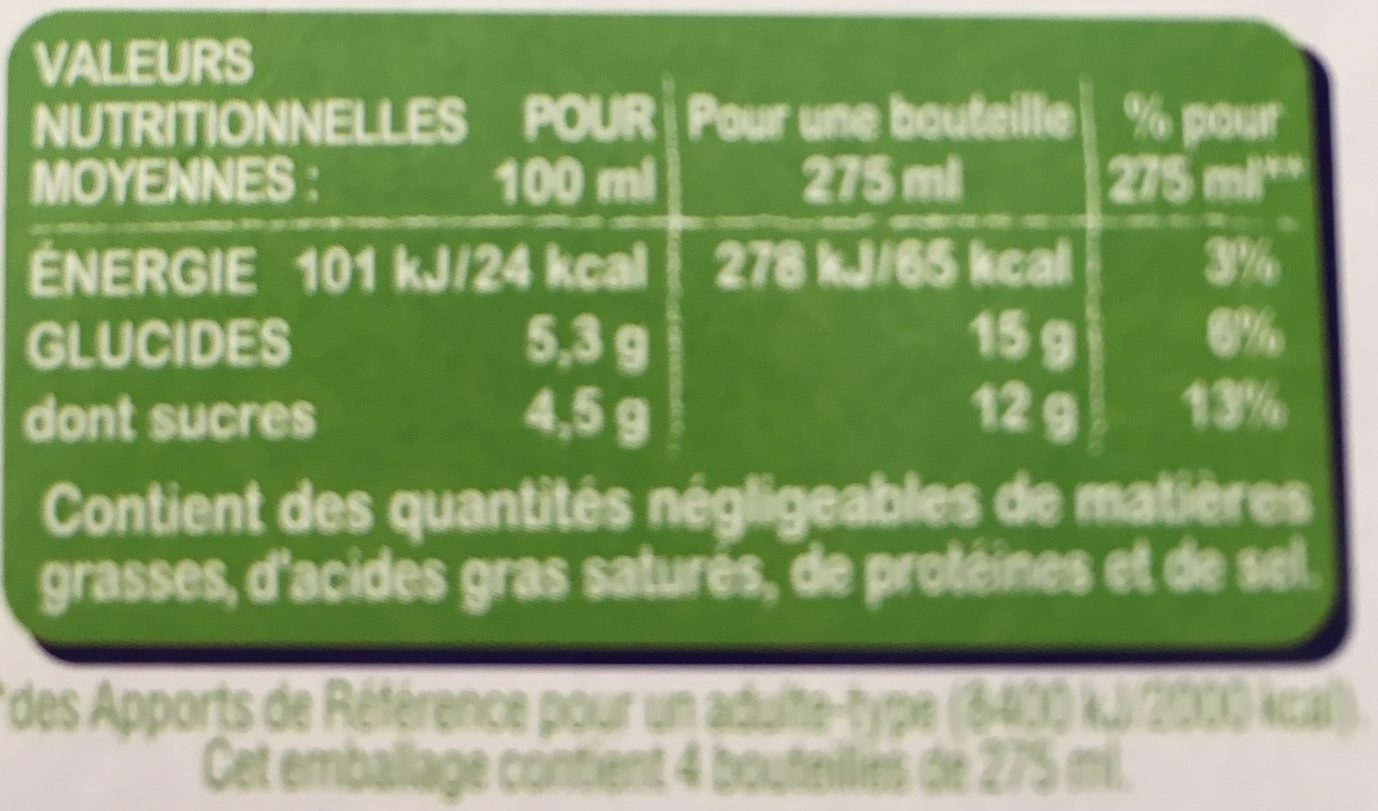Fruit Shoot Fruizéo Pomme - TEISSEIRE - 27.5 cl
This product page is not complete. You can help to complete it by editing it and adding more data from the photos we have, or by taking more photos using the app for Android or iPhone/iPad. Thank you!
×
Barcode: 3092718617714 (EAN / EAN-13)
Common name: Boisson rafraîchissante à la pomme et à l'eau de source
Quantity: 27.5 cl
Brands: TEISSEIRE, Fruit Shoot, Fruizéo
Categories: Beverages, Unsweetened beverages
Labels, certifications, awards: Low or no sugar, No added sugar
Manufacturing or processing places: France
Link to the product page on the official site of the producer: http://www.teisseire.fr/gammes/fruit-sho...
Countries where sold: France
Matching with your preferences
Environment
Packaging
Transportation
Report a problem
Data sources
Product added on by kiliweb
Last edit of product page on by packbot.
Product page also edited by laurie034, openfoodfacts-contributors, yuka.VjRZdEQ3c012dlFKc2NFNm96WHA5K3NwL29DeVpVaTJCdHNXSVE9PQ.










